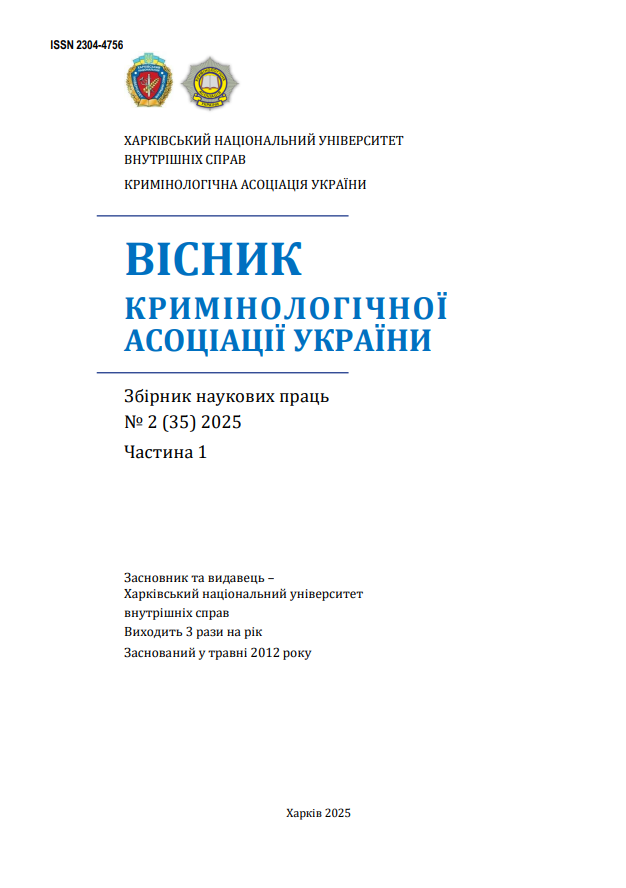REGULATORY AND LEGAL FRAMEWORK AND APPLICATION OF THE PRINCIPLE OF PROPORTIONALITY IN CONDUCTING COVERT INVESTIGATIVE (SEARCH) ACTIONS UNDER MARTIAL LAW
DOI:
https://doi.org/10.32631/vca.2025.2.15Keywords:
martial law, prevention, criminal procedure, criminal offenses, covert investigative (search) actions, temporarily occupied territories, counteraction, human rights, principles, principle of proportionality, combat zoneAbstract
The article examines the regulatory and legal framework and the application of the principle of proportionality in conducting covert investigative (search) actions under the legal regime of martial law. The authors explore a component of the constitutional principle of the rule of law – the principle of proportionality. Attention is drawn to the importance of this principle as a balance in achieving the objectives of criminal proceedings, namely between the public harm averted and the harm caused to the legally protected rights and interests of individual citizens. The authors argue for the necessity of maintaining a balance between protected and violated human rights and freedoms, since the doctrine of criminal procedure immediately highlights the controversial issues that arise in the practical application of the institution of covert investigative (search) actions. This institution is provided for in the Criminal Procedure Code of Ukraine in order to ensure the fullest possible realization of the tasks of criminal proceedings.It is demonstrated that since the Criminal Procedure Code of Ukraine came into force, the practice of applying the institution of covert investigative (search) actions has been established: the grounds and conditions for their conduct, the procedure for conducting them, their destruction, use as evidence in court, and the procedure for informing individuals about such actions, etc. It is noted that the introduction of the legal regime of martial law in Ukraine, due to the war initiated by the Russian Federation against our country, the daily registration of war crimes and crimes of aggression, and the need to uncover and investigate criminal offenses committed in active combat zones and temporarily occupied territories, have led to a number of problematic issues related to the criminal procedural collection of lawful, relevant, and admissible evidence. At the same time, law enforcement agencies are now faced with the urgent task of documenting and investigating each criminal offense committed by the aggressor state, in order to later provide the evidence gathered during criminal proceedings to international criminal courts. There is a pressing need to maintain a balance between fulfilling the tasks of criminal proceedings and preventing excessive interference by law enforcement in an individual's privacy. For this reason, the principle of proportionality, as a component of the rule of law, is receiving increased attention. Based on a systematic analysis of the norms of the Criminal Procedure Code of Ukraine, the authors conclude that the principle of proportionality is not explicitly or implicitly stated in the Code. Therefore, legislative changes are proposed to strengthen the rights and freedoms of individuals guaranteed by the Constitution of Ukraine and to legally oblige law enforcement agencies to ensure their practical implementation, particularly when applying the institution of covert investigative (search) actions.
Downloads
Downloads
Published
Issue
Section
License
Copyright (c) 2025 С.В. ІВАШКО, Р.В. ШПАК

This work is licensed under a Creative Commons Attribution 4.0 International License.

